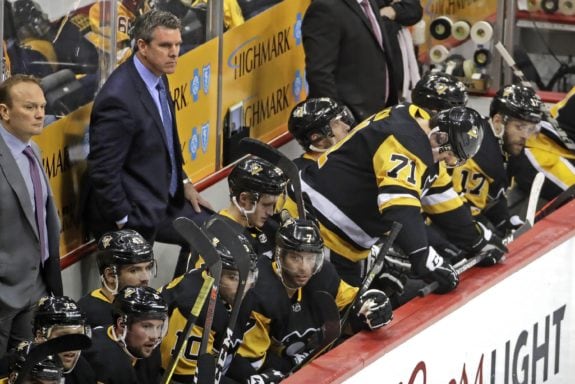After winning back-to-back Stanley Cups in 2016 and 2017, the Pittsburgh Penguins have established a new streak; back-to-back early exits from the Stanley Cup playoffs and, with an aging core group of players, a revamped approach may be required to break this streak.
Related: Sid For Selke? Crosby’s All-Around Game has Earned It
While last season’s defeat at the hands of the eventual Stanley Cup champion Washington Capitals could have been excused as simply a matter of one talented team beating another, this year’s collapse against a blue-collar New York Islanders team is different.

While the Capitals had come up just short against the Penguins in their two previous postseason meetings and seemed to have destiny on their side last season, the Islanders, having lost their captain and offensive leader John Tavares in free agency and with questions surrounding their goaltending, were not expected to even make the playoffs this season.
In the Playoffs, Structure Beats Skill
Despite being the more talented and more experienced team, the Penguins were quickly dispatched by a more disciplined Islanders team that continually pressured them into mistakes and converted those mistakes into scoring chances. While this may have been a surprise to many around the NHL, it shouldn’t have been to Penguins fans who saw this same storyline play out during the regular season as the Penguins’ stubborn reliance on a high-risk, high-reward style of hockey once again proved to be their undoing.
Which brings us to Kris Letang; the Penguins’ talented defenseman who personifies this style of play and the ups and downs that accompany it.

As the Penguins’ all-time leader in points among defensemen, Letang is one of the greatest players in franchise history and will likely have his jersey raised to the rafters in PPG Paints Arena someday along with Sidney Crosby and Evgeni Malkin.
However, for all of Letang’s talent and accomplishments, the Penguins have demonstrated that, through defense and discipline, they can win consistently without him and his freewheeling style of play.
Absence Leads to Adjustments
After Letang suffered a season-ending neck injury in 2017, the Penguins went on to win the Stanley Cup by relying on a tight defensive structure that choked the neutral zone and an opportunistic offense that converted turnovers into scoring chances.
This season, after losing Letang to an injury on Feb. 23, the Penguins simplified their game and adopted a more conservative and defensive-minded style and posted a 7-2-2 record during his absence and solidified their hold on a playoff spot.
While the Penguins are obviously a more talented group with Letang, the fact remains that they have proven too often to be a more disciplined team without him. Therefore, if discipline trumps talent in the playoffs, that begs the question; can the Penguins be the same structured team with Letang as they are without him?
Aging Penguins Must Adapt
Without a doubt, team structure requires a team-wide commitment so placing the blame for the Penguins’ failure to consistently play disciplined hockey on Letang alone would be unfair. As Penguins head coach Mike Sullivan pointed out, a lack of “buy-in” to the system was a team-wide issue.
Related – Offseason Rumors: Cooper, Canucks, Penguins, More
However, with Letang averaging almost three giveaways per game in the Islanders series after anchoring the top power-play unit on a team that surrendered a league-worst 15 shorthanded goals during the regular season, it’s clear that, while the Penguins’ persistent problem of a lack of structure and discipline doesn’t end with Letang, it does start with him.
With a longer than expected offseason now ahead of him, Penguins general manager Jim Rutherford must now decide whether Letang and the rest of the Penguins are willing and able to finally buy into and execute Sullivan’s system. If not, for the sake of avoiding yet another postseason collapse, he may choose to say goodbye to one or more of the holdouts in an effort to avoid another postseason meltdown.